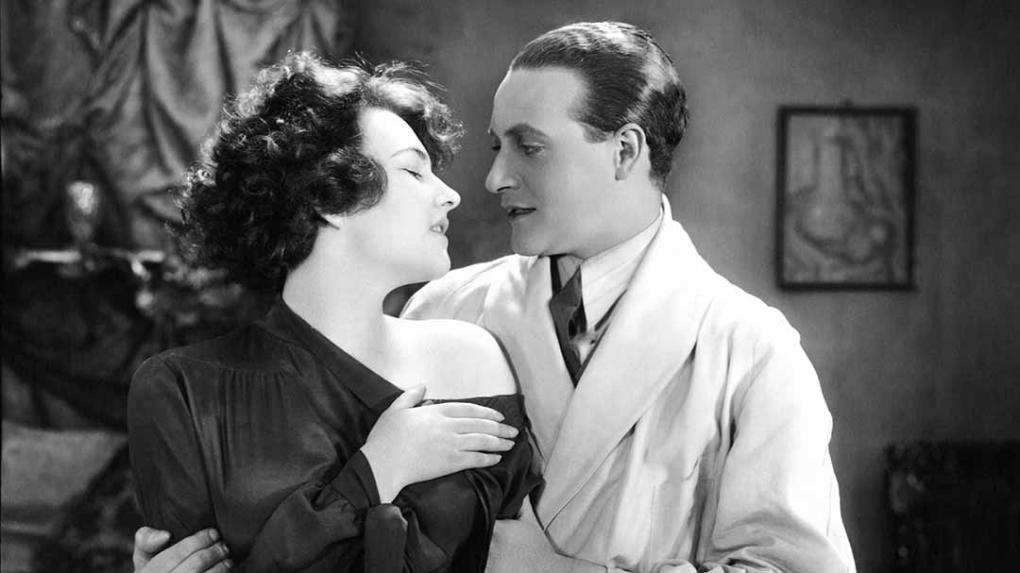The Copenhagen Silent Film Festival offers five days of silent film festivities, showcasing digitized—and in most cases newly restored—films that demonstrate how beautifully even the oldest films can shine on the big screen. This year, Denmark’s legacy as a silent film nation is in the spotlight, with screenings of landmark works by Danish directors Benjamin Christensen, Lau Lauritzen, Holger-Madsen, and, of course, Carl Th. Dreyer, who will close the festival on Sunday, January 26th, with the feminist chamber drama Master of the House (Du skal ære din hustru). Danish silent film’s greatest diva, Asta Nielsen, will also be honored with two screenings of her acclaimed international roles in Vanina and Der Reigen.
Silent Film for a Global Audience
The festival extends an invitation to the world with major international silent films like Japanese director Yasujiro Ozu’s masterpiece I Was Born, but..., German filmmaker Ernst Lubitsch’s comedy Kohlhiesels Töchter (Father Mathias’ Daughters), and American director Allan Dwan’s stunning New York portrait East Side, West Side. The festival also features international guest appearances, including film historian and silent film expert Oliver Hanley, silent film musician Yael Acher, and the renowned silent film accompanist Stephen Horne, who will perform live for six festival screenings.
Experience Silent Film in New Ways
The program includes beloved classics featuring Charlie Chaplin, Harold Lloyd, Buster Keaton, and Laurel & Hardy, with Danish maestro Lars Fjeldmose accompanying on piano, as is tradition. However, this year’s festival also brings fresh experiences.
Festival editor Sophie Engberg Sonne shares:
"How do we keep film history relevant for today and for the future of Danish cinema? This is a question we continually ask ourselves—whether by revisiting great classics, unearthing hidden gems from film history, or introducing new ways to experience silent film. For instance, we’re hosting a Silent Disco and inviting young talents from Danish conservatories to compose new music for century-old films. Even though all existing Danish silent films have now been digitized, our work continues. There are countless incredible Danish films to showcase and stories to tell, and the Copenhagen Silent Film Festival will keep doing just that in the future."
The Golden Age of Danish Cinema Now Online
The Copenhagen Silent Film Festival, one of the Cinematheque’s most popular events, is part of the Danish Film Institute’s mission to preserve and share early cinema. This includes groundbreaking research and the ambitious archival project Stumfilm.dk. Both online and in theaters, Denmark’s early film heritage is being shared with slapstick-loving families and silent film enthusiasts alike.
This year, the festival marks the completion of the Danish Film Institute’s massive silent film project, making the entire preserved Danish silent film collection freely accessible on Stumfilm.dk.
Lars-Martin Sørensen, Head of Research, remarks:
"It’s extraordinary to be the first of the major silent film-producing nations to make the entire preserved collection freely available: films, fragments, posters, and programs—all just a click away. As researchers, we now have access to a vast corpus of films, offering new insights and perspectives. We can see—film by film—how modern cinematic language evolved. We’ve also learned that what we once considered outdated can resonate profoundly with today’s audiences, such as silent cinema’s strong female characters, embraced by modern feminists. And with this treasure trove of material, we’re eager to continue sharing new perspectives, through theme articles on Stumfilm.dk, screenings at the Cinematheque, and the Danish Film Institute’s social media channels."
Opening Night
The festival kicks off on Wednesday, January 22nd, with a champagne celebration and a screening of Benjamin Christensen’s elegant drama Who Is His Wife? (Hvem er hans kone?, 1923), accompanied by live music from renowned silent film musician Stephen Horne. The film has been meticulously restored and digitized by the Danish Film Institute’s archives.
A special thanks to the Goethe-Institut for supporting the festival.
The silent film project is funded by the Aage and Johanne Louis-Hansen Foundation, the Augustinus Foundation, and the A.P. Møller Foundation.
